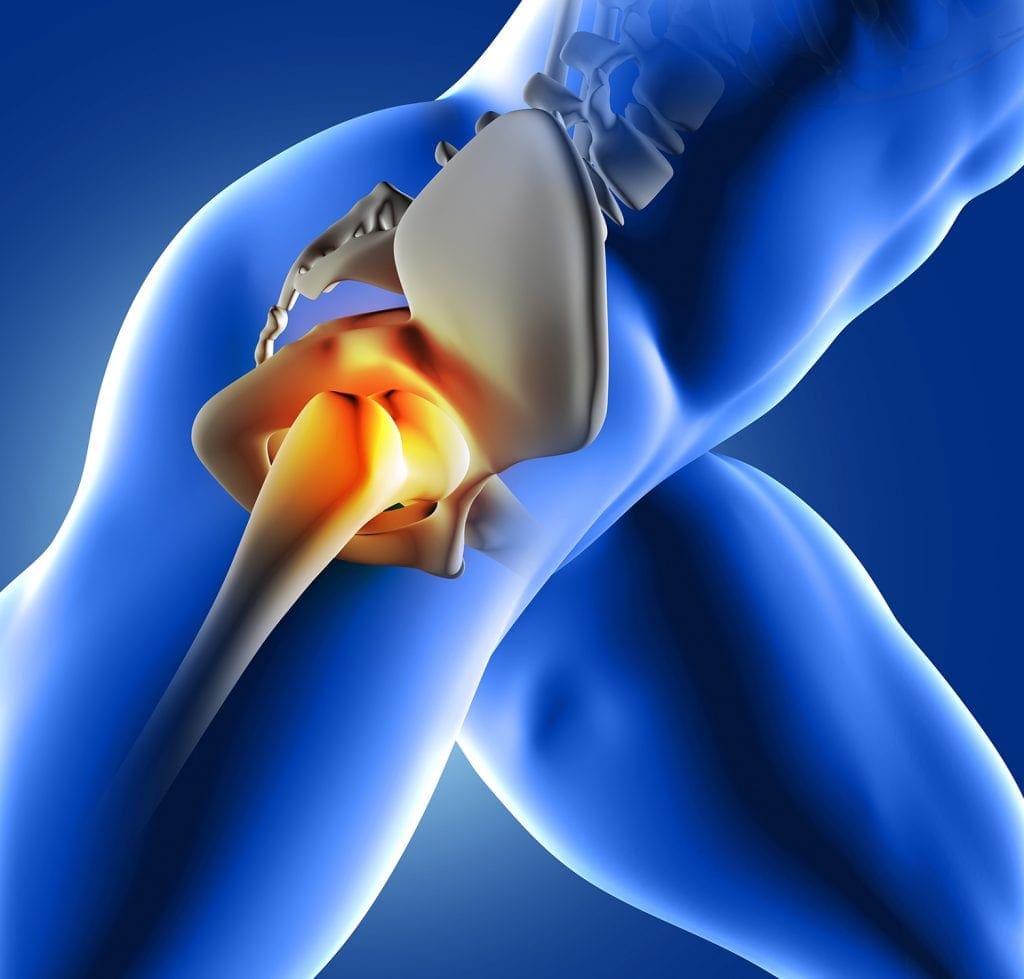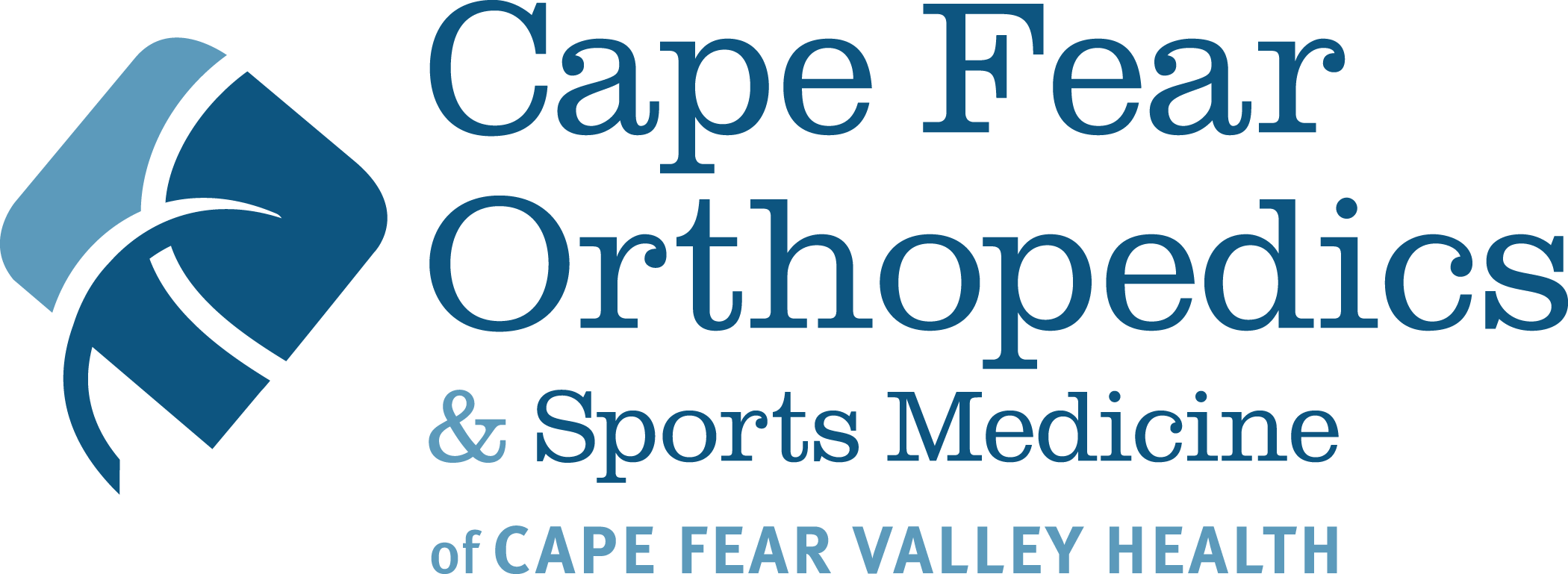UNDERSTANDING HIP PAIN

Think of your favorite exercise or sporting activity. You’ve done it for years and lately you’re experiencing a nagging pain in your hip that is making it difficult. You choose to switch to something less intense; however, the pain grows so bad that you give up your activity and instead decide to swim or walk. You avoid the doctor because you are afraid of hearing you will need surgery.
Hip pain can be the result of a condition that has developed over time, such as bursitis and arthritis, or from a recent hip injury, such as a hip fracture or hip dislocation.
In some cases, and if not detected early, conditions such as hip bursitis and hip arthritis may create extreme bone and joint discomfort, making procedures like hip arthroplasty and hip replacement surgery credible options for relieving your hip pain.
ANATOMY OF THE HIP
The hip is the largest ball and socket joint in the body; made up of the femur (thigh bone), femoral head, acetabulum, tendons, ligaments, and cartilage. This complex joint controls the movement of the leg and supports the weight of the upper body at the same time.
COMMON CAUSES OF HIP PAIN
Due to the amount of movement and stress on the hip joint, the majority of hip cases can be attributed to worn cartilage, inflammation, or injury.
ARTHRITIS
Arthritis is a degenerative joint disease. Chronic inflammation causes the cartilage to wear down, making it painful to move the joint.
BURSITIS
When you have bursitis, you feel the pain directly in your hip. The bursa, or fluid-filled pads that cushion the joints, become inflamed and friction occurs when the joint moves.
REFERRED PAIN
Sometimes people experience referred pain from the lower back in their hip. When the sciatic nerve is injured it causes pain.
SIGNS AND SYMPTOMS
- Joint pain felt in the front of the hip, along the outside of the hip, in the groin, or over the buttock area
- Discomfort and swelling in the thigh and knee
- Joint inflammation or hip muscle spasms, which may cause fluid accumulation in the hip joint
- Limping or the inability to walk comfortably on the affected side
- Inability to bend or rotate the hip
- Soreness and the feeling of the hip throbbing while sleeping or resting
- Fever, redness, and warmth—which are signs of infection
TREATMENT OPTIONS
Pain that interferes with normal, regular activities lasting longer than two weeks needs to be evaluated by an orthopedic specialist. There are several treatment options available to treat hip cases and many are nonsurgical.
ULTRASOUND GUIDED INJECTIONS
These injections often consist of the steroid cortisone, a joint lubricant, hyaluronic acid, and a local anesthetic. These injections are typically used in treating bursitis and the procedure takes about 10-15 minutes.
PHYSICAL THERAPY
Physical therapy always starts with an assessment. A treatment plan is then created with specific exercises tailored for your specific hip concerns. Physical Therapy will increase flexibility and build up muscle to aid in reducing pain.
HIP REPLACEMENT
Joint replacement is where the damaged cartilage and bone are replaced with a prosthetic. The recovery usually takes around six weeks, followed by physical therapy.
ANTERIOR APPROACH
Direct anterior hip replacement is a minimally invasive surgical technique. With anterior hip replacement, the surgeon makes a small incision near the front of the hip to allow for removal of damaged bone and cartilage, and implantation of an artificial hip without damaging surrounding muscle and tendons. Patients leave the hospital sooner than they would with some other approaches. Dr. Newman, with Cape Fear Orthopedics, is the only surgeon in the Fayetteville region performing hip replacement via the direct anterior approach.
Your body knows best. Listen to it! If you have any pain during activity, stop immediately. Try modifying to see if the pain will subside. If not, you most likely need medical care.
At Cape Fear Orthopedics & Sports Medicine we understand that hip pain can have a significant impact on your daily life, and we will work with you to develop a treatment plan specific to your needs. Our experts understand that proper diagnosis is paramount in determining the most effective treatment plan for your individual condition. For a consultation with one of our providers, call us at (910) 484-2171.

